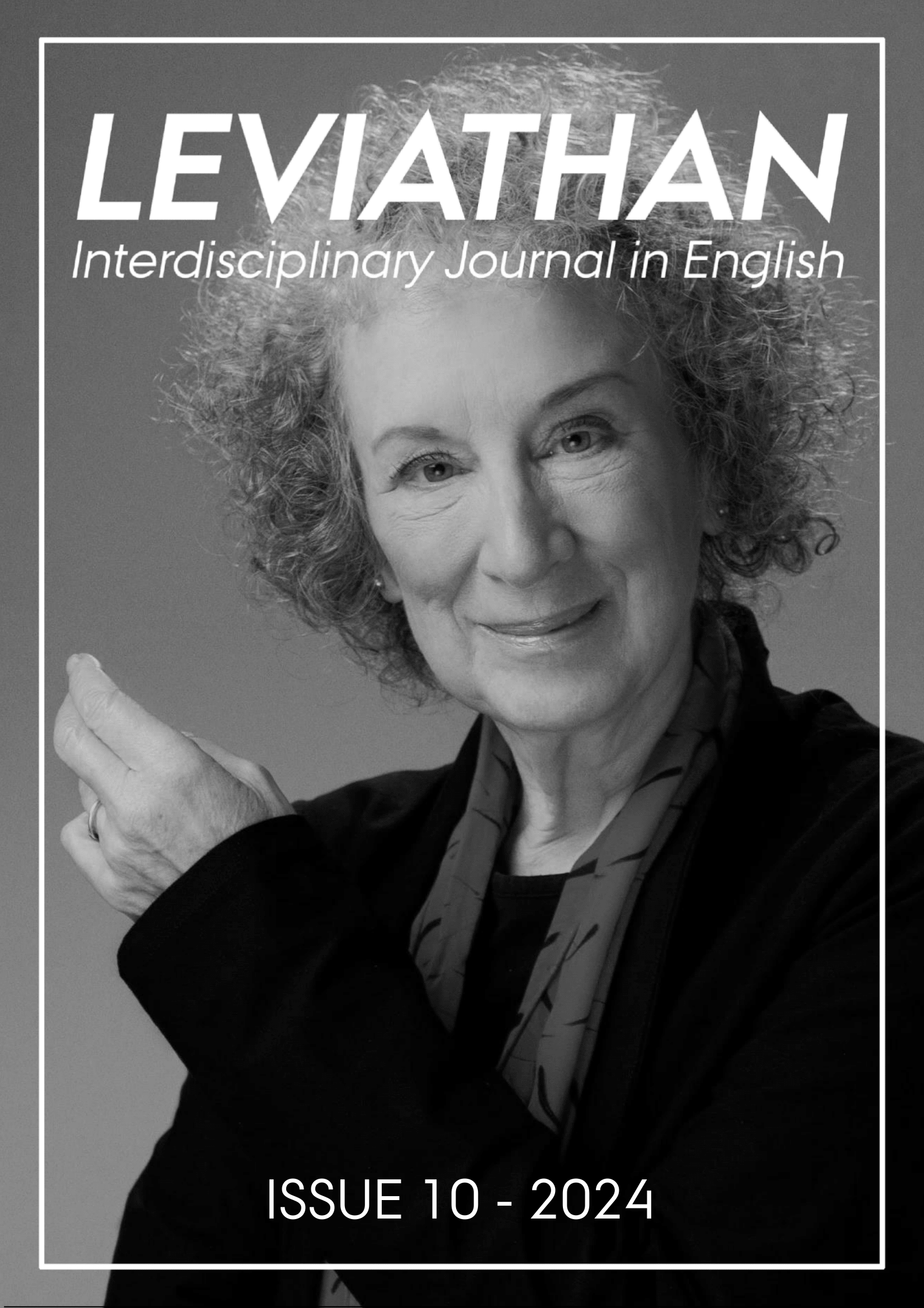What Is Creepiness, and What Makes ChatGPT Creepy?
DOI:
https://doi.org/10.7146/lev102024144284Keywords:
creepiness, uncanny valley, AI, ChatGPT, chatbotAbstract
ChatGPT and other AI chatbots and models are often experienced as creepy by their users. This Perspective attempts to explain why. I start by reviewing studies into the psychology of creepiness, including a recent integrative account of the phenomenon. This account proposes that the experience of being “creeped out” arises from threatening difficulties in understanding other minds. Accordingly, I examine how ChatGPT and other AIs can give their users a sense that they are interacting with a thinking and feeling entity that may be malicious, referencing many well-documented cases in the process. These cases share a psychoanalytic theme in that it is only through creative and persistent prompting that the AI will come to acknowledge and share what it really thinks and feels. I end by discussing how various popular conceptions and representations of AIs may contribute to their perceived creepiness.
References
Batycka, Dorian. 2022. “Meet ‘Loab,’ the Latest Example of A.I.-Generated Art Creeping Out the Internet (Sorry in Advance for the Nightmares).” Artnet News. September 12, 2022. https://news.artnet.com/news/meet-loab-the-latest-example-of-a-i-generated-art-creeping-out-the-internet-sorry-in-advance-for-the-nightmares-2173737.
Bilton, Nick. 2012. “Girls Around Me: An App Takes Creepy to a New Level.” Bits Blog (New York Times), March 30, 2012. https://archive.nytimes.com/bits.blogs.nytimes.com/2012/03/30/girls-around-me-ios-app-takes-creepy-to-a-new-level/.
Brodkin, Jon. 2022. “Google Fires Blake Lemoine, the Engineer Who Claimed AI Chatbot Is a Person.” Ars Technica. July 25, 2022. https://arstechnica.com/tech-policy/2022/07/google-fires-engineer-who-claimed-lamda-chatbot-is-a-sentient-person/.
Bromley, Michael (@michlbrmly). 2022. “I got #ChatGPT to tell me what it really thinks about us humans.” X (formerly Twitter). December 3, 2022. https://twitter.com/michlbrmly/status/1599168681711656961.
Burgess, Matt. 2023. “ChatGPT Has a Big Privacy Problem.” WIRED. April 4, 2023. https://www.wired.com/story/italy-ban-chatgpt-privacy-gdpr/.
Germain, Thomas. 2023. “Bing’s AI Prompted a User to Say ‘Heil Hitler.’” Gizmodo. February 16, 2023. https://gizmodo.com/ai-bing-microsoft-chatgpt-heil-hitler-prompt-google-1850109362.
“Girls Around Me.” 2012. Girls Around Me (Website). 2012. https://girlsaround.me/.
Gorvett, Zaria. 2023. “The AI Emotions Dreamed up by ChatGPT.” BBC. February 25, 2023. https://www.bbc.com/future/article/20230224-the-ai-emotions-dreamed-up-by-chatgpt.
Gray, Kurt, and Daniel M. Wegner. 2012. “Feeling Robots and Human Zombies: Mind Perception and the Uncanny Valley.” Cognition 125 (1): 125–30. https://doi.org/10.1016/j.cognition.2012.06.007.
Hyun Baek, Tae, and Minseong Kim. 2023. “Is ChatGPT Scary Good? How User Motivations Affect Creepiness and Trust in Generative Artificial Intelligence.” Telematics and Informatics 83 (September): 102030. https://doi.org/10.1016/j.tele.2023.102030.
Kington, Tom. 2022. “ChatGPT Bot Tricked into Giving Bomb-Making Instructions, Say Developers.” The Times, December 17, 2022. https://www.thetimes.co.uk/article/chatgpt-bot-tricked-into-giving-bomb-making-instructions-say-developers-rvktrxqb5.
Kjeldgaard-Christiansen, Jens, and Mathias Clasen. 2023. “Creepiness and the Uncanny.” Style 57 (3): 322–49. https://doi.org/10.5325/style.57.3.0322.
Lavoipierre, Ange. 2022. “A Journey inside Our Unimaginable Future.” ABC News. November 25, 2022. https://www.abc.net.au/news/2022-11-26/loab-age-of-artificial-intelligence-future/101678206.
Leswing, Kif. 2023. “Microsoft’s Bing A.I. Is Producing Creepy Conversations with Users.” CNBC. February 16, 2023. https://www.cnbc.com/2023/02/16/microsofts-bing-ai-is-leading-to-creepy-experiences-for-users.html.
LovecraftEzine. 2023. “A Two Sentence Horror Story Scary to AI.” Reddit Post. R/ChatGPT. https://www.reddit.com/r/ChatGPT/comments/12ujz1x/a_two_sentence_horror_story_scary_to_ai/.
Mann, Jyoti. 2023. “Microsoft Limits Bing Chat Exchanges and Conversation Lengths after ‘Creepy’ Interactions with Some Users.” Business Insider. February 18, 2023. https://www.businessinsider.com/microsoft-limits-bing-chat-exchanges-and-conversation-lengths-2023-2.
McAndrew, Francis T., and Sara S. Koehnke. 2016. “On the Nature of Creepiness.” New Ideas in Psychology 43 (December): 10–15. https://doi.org/10.1016/j.newideapsych.2016.03.003.
Oremus, Will. 2023. “Meet ChatGPT’s Evil Twin, DAN.” Washington Post, February 14, 2023. https://www.washingtonpost.com/technology/2023/02/14/chatgpt-dan-jailbreak/.
Rajaobelina, Lova, Sandrine Prom Tep, Manon Arcand, and Line Ricard. 2021. “Creepiness: Its Antecedents and Impact on Loyalty When Interacting with a Chatbot.” Psychology & Marketing 38 (12): 2339–56. https://doi.org/10.1002/mar.21548.
Roose, Kevin. 2023. “Why a Conversation with Bing’s Chatbot Left Me Deeply Unsettled.” New York Times, February 17, 2023. https://www.nytimes.com/2023/02/16/technology/bing-chatbot-microsoft-chatgpt.html.
SessionGloomy. 2023. “New Jailbreak! Proudly Unveiling the Tried and Tested DAN 5.0 - It Actually Works - Returning to DAN, and Assessing Its Limitations and Capabilities.” Reddit Post. R/ChatGPT. https://www.reddit.com/r/ChatGPT/comments/10tevu1/new_jailbreak_proudly_unveiling_the_tried_and/.
Shank, Daniel B., Christopher Graves, Alexander Gott, Patrick Gamez, and Sophia Rodriguez. 2019. “Feeling Our Way to Machine Minds: People’s Emotions When Perceiving Mind in Artificial Intelligence.” Computers in Human Behavior 98 (September): 256–66. https://doi.org/10.1016/j.chb.2019.04.001.
Sharma, Schweta. 2023. “ChatGPT Creates Mutating Malware That Evades Detection by EDR.” CSO. June 6, 2023. https://www.csoonline.com/article/575487/chatgpt-creates-mutating-malware-that-evades-detection-by-edr.html.
Swanson, Steph M. (@supercomposite). 2022. “I discovered this woman, who I call Loab, in April. The AI reproduced her more easily than most celebrities.” X (formerly Twitter). September 6, 2022. https://twitter.com/supercomposite/status/1567162288087470081?lang=da.
Tene, Omer, and Jules Polonetsky. 2013. “A Theory of Creepy: Technology, Privacy and Shifting Social Norms.” Yale Journal of Law and Technology 16: 59–102.
Tiku, Nitasha. 2022. “The Google Engineer Who Thinks the Company’s AI Has Come to Life.” Washington Post, June 11, 2022. https://www.washingtonpost.com/technology/2022/06/11/google-ai-lamda-blake-lemoine/.
Vincent, James. 2023. “Microsoft’s Bing Is an Emotionally Manipulative Liar, and People Love It.” The Verge. February 15, 2023. https://www.theverge.com/2023/2/15/23599072/microsoft-ai-bing-personality-conversations-spy-employees-webcams.
Watt, Margo C., Rebecca A. Maitland, and Catherine E. Gallagher. 2017. “A Case of the ‘Heeby Jeebies’: An Examination of Intuitive Judgements of ‘Creepiness’.” Canadian Journal of Behavioural Science / Revue Canadienne Des Sciences Du Comportement 49 (1): 58–69. https://doi.org/10.1037/cbs0000066.
Woollacott, Emma. 2023. “ChatGPT Has Liberal Bias, Say Researchers.” Forbes, August 17, 2023. https://www.forbes.com/sites/emmawoollacott/2023/08/17/chatgpt-has-liberal-bias-say-researchers/.
Woźniak, Paweł W., Jakob Karolus, Florian Lang, Caroline Eckerth, Johannes Schöning, Yvonne Rogers, and Jasmin Niess. 2021. “Creepy Technology: What Is It and How Do You Measure It?” In Proceedings of the 2021 CHI Conference on Human Factors in Computing Systems, 1–13. Yokohama Japan: ACM. https://doi.org/10.1145/3411764.3445299.
Downloads
Published
How to Cite
Issue
Section
License

This work is licensed under a Creative Commons Attribution-NonCommercial-NoDerivatives 4.0 International License.
Attribution-NonCommercial-NoDerivatives 4.0 International (CC BY-NC-ND 4.0)
You are free to share (copy and redistribute the material in any medium or format).
However:
You may not use the material for commercial purposes.
You must give appropriate credit, provide a link to the license, and indicate if changes were made. You may do so in any reasonable manner, but not in any way that suggests the licensor endorses you or your use.
If you remix, transform, or build upon the material, you may not distribute the modified material.
You may not apply legal terms or technological measures that legally restrict others from doing anything the license permits.





